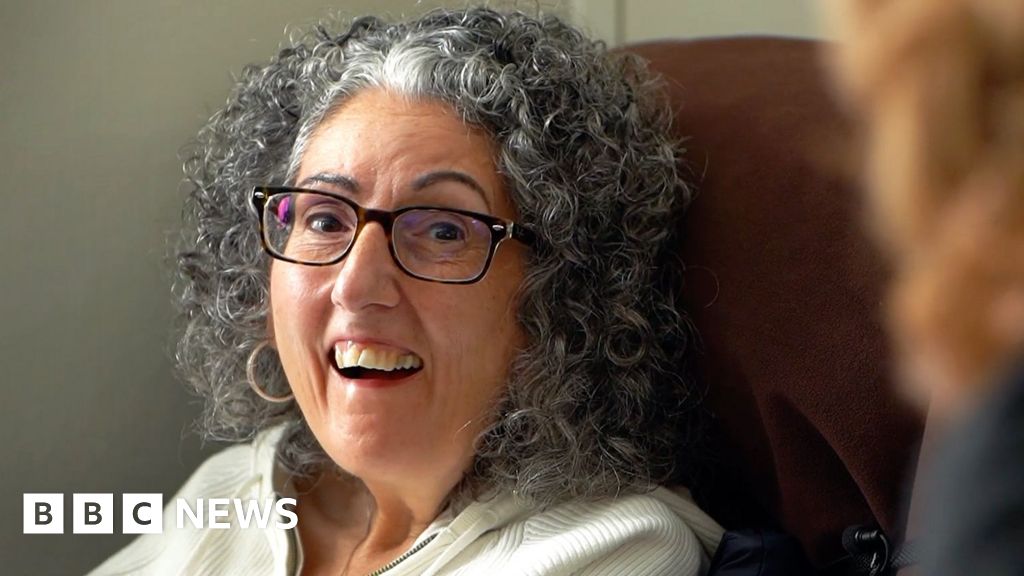
"The onset of motor neurone disease (MND) left Sarah without a voice and the use of her hands at the age of 34. It was within months of her becoming a mum for the second time. As they were growing up, her children Aviva and Eric only ever heard her speak through a machine with an emotionless robotic voice. But 25 years on, artificial intelligence (AI) has recreated their mum's real voice from just eight seconds of audio on a scratchy VHS tape."
"Sarah speaks to the BBC with eye-gaze technology - which uses a camera to track her eyes as she looks at letters on a screen in front of her. The sound of her younger voice rings out. The "miracle" Sarah describes began when Bristol-based assistive technology company, Smartbox, asked her for an hour's worth of audio to recreate her voice. Sarah and her now-adult children hunted for something suitable"
Sarah Ezekiel developed motor neurone disease at 34, losing her voice and hand function within months while expecting a second child. Her children only heard an emotionless synthetic voice as she communicated. Twenty-five years later, AI reconstructed her younger, authentic voice from eight seconds of distorted VHS audio. She now uses eye-gaze technology to select letters on a screen while the recreated voice speaks. A Bristol assistive technology company requested an hour of audio; the family located a short VHS clip that contained barely audible fragments sufficient for voice synthesis. The restored voice elicited an emotional response from Sarah and her family.
Read at www.bbc.com
Unable to calculate read time
Collection
[
|
...
]